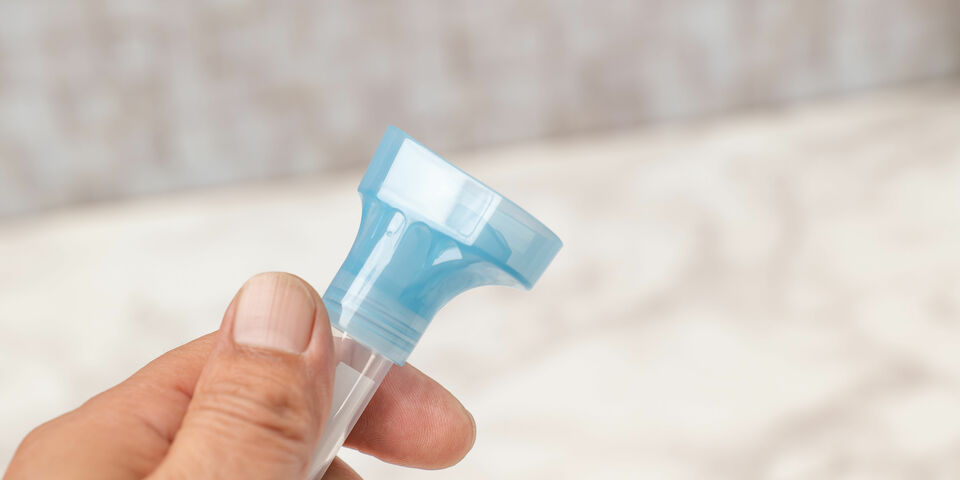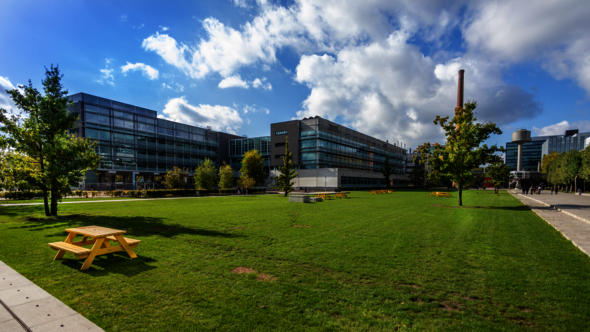Fontys launches intelligent testing in Nexus building
On the TU/e campus the pilot ‘Corona-free bubbles thanks to intelligent testing’ is now underway in Nexus, the Fontys building. It is one of the eight pilots being run at the instigation of the Dutch Ministry of Education, Culture and Science, with the aim of establishing whether education can return safely to the classroom this coming academic year. Fontys is using saliva testing and daily digital triage.
The Ministry of Education is keen to get secondary vocational, higher vocational and university education back to as near 'normal' as possible by the start of the academic year 2021-22 - or earlier, if possible. This means students attending in person wherever feasible, with testing providing additional support to protective measures like face masks, screens and designated pedestrian routes. Across the Netherlands eight pilots are now running, each with its own unique design.
The pilot ‘Corona-free bubbles thanks to intelligent testing’ has been initiated by two lecturers working in the Lectorate of Applied Natural Sciences (ANS) at Fontys, Anne Loonen and Joost Schoeber. Together with TU/e, Summa and external partners, they are developing a people-friendly method using what is known as the 3T Shield Concept. The three Ts stand for triage, testing and tracing. The triage takes place daily via an app-based questionnaire, the testing takes the form of a saliva swab and the tracing is easy because the pilot is working with a known group of participants.
Unique
“With the application of digital triage and the PCR saliva test, not to be confused with rapid testing, this pilot is unique among the eight national pilots,” says project leader Laura Kallenberg. “Recent studies, including those conducted by our ANS Lectorate, show that PCR saliva testing can offer a superior alternative to rapid testing based on nose and throat swabs.”
Kallenberg lists some of the advantages of PCR saliva tests: “Saliva collection is a non-invasive procedure, it requires no specialist staff, the person being tested can collect their own saliva, collection is faster and cheaper, and PCR tests are much more sensitive and reliable than the rapid tests currently available.”
Practicability
ANS is housed on the TU/e campus in the Nexus building, a location now visited regularly by the first twenty participants. They will be working with the 3T Shield Concept for at least four weeks, while also observing the existing corona measures. The pilot will also consider the practicability of this approach and the logistics involved - for example the saliva samples are sent to Sure Laboratories in Helmond for testing - as well as the feasibility of the processes the team has devised. Other areas of study include the staff's perception of safety and the medical, ethical and legal aspects of this method.
“The next step, planned for some point in the near future, is to scale up the number of people using Nexus to two hundred,” says Kallenberg. “Who exactly that may be is not yet known. And in mid-April we hope to step up the number of pilot participants.” Once the test results of all eight pilots are known, sometime after May, these results will be compared and the ministry will consider suitable methods that it may well be possible to introduce after the summer vacation.



Discussion